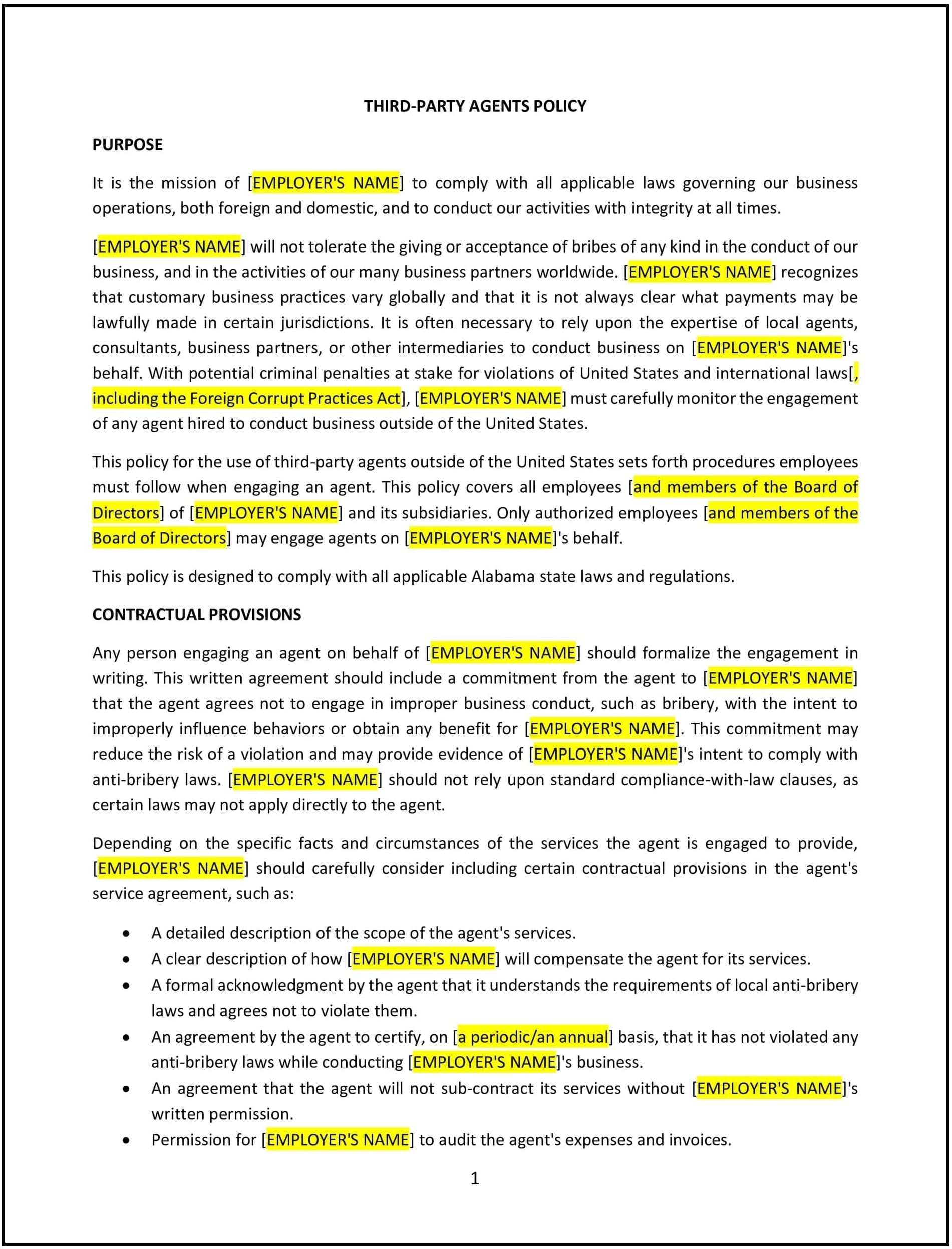Got contracts to review? While you're here for policies, let Cobrief make contract review effortless—start your free review now.

Customize this template for free
Third-party agents policy (Alabama)
A third-party agents policy establishes guidelines for working with external agents, contractors, or representatives acting on behalf of the company. For SMBs in Alabama, this policy helps mitigate risks, ensures compliance with applicable laws, and protects the company’s reputation by maintaining oversight of third-party relationships.
This policy outlines the expectations, approval processes, and monitoring procedures for engaging third-party agents, ensuring alignment with company goals and legal standards.
How to use this third-party agents policy (Alabama)
- Define third-party agents: Clarify the scope of individuals or entities considered third-party agents, such as contractors, consultants, or external sales representatives.
- Establish approval procedures: Outline steps for vetting and approving third-party agents, including due diligence checks and contractual agreements.
- Set expectations: Specify the roles, responsibilities, and ethical standards expected of third-party agents, including compliance with company policies.
- Include monitoring processes: Provide guidelines for ongoing oversight, such as periodic reviews, performance evaluations, and compliance audits.
- Address violations: Detail the consequences of non-compliance or misconduct, such as contract termination or legal action.
Benefits of using a third-party agents policy (Alabama)
A third-party agents policy ensures that external representatives align with the company’s standards and values. Here’s how it helps:
- Reduces risks: Minimizes legal, financial, and reputational risks associated with third-party activities.
- Ensures compliance: Aligns third-party relationships with Alabama and federal laws, such as anti-corruption regulations.
- Promotes accountability: Establishes clear expectations and oversight mechanisms to monitor agent activities.
- Protects the company: Safeguards intellectual property, confidential information, and brand reputation.
- Enhances transparency: Provides a structured framework for engaging and managing third-party agents.
Tips for implementing a third-party agents policy (Alabama)
- Conduct due diligence: Thoroughly vet third-party agents before engagement, checking references, credentials, and past performance.
- Use written agreements: Require signed contracts that outline roles, responsibilities, and compliance requirements.
- Provide training: Offer training on company policies and legal standards relevant to their engagement.
- Monitor activities: Implement regular reviews or audits to ensure agents meet performance and compliance expectations.
- Update contracts: Periodically revise agreements to reflect changes in company goals, regulations, or market conditions.